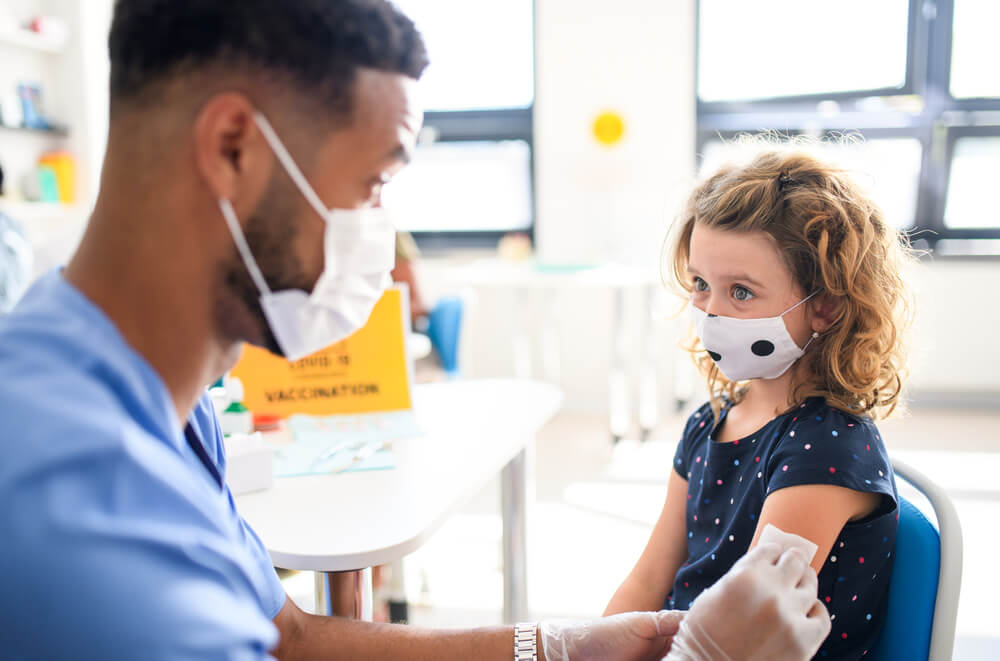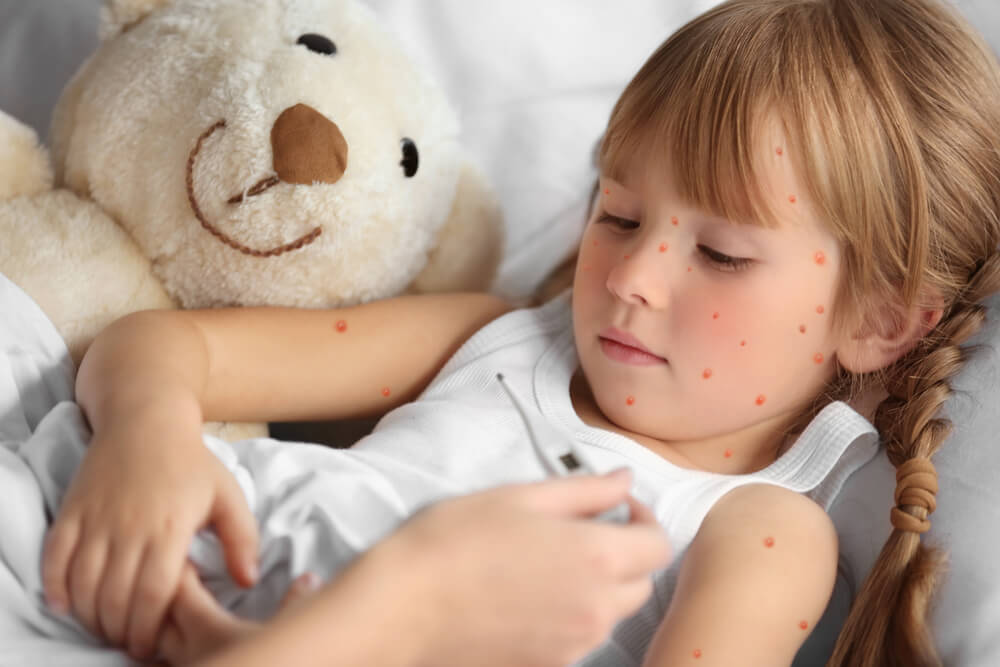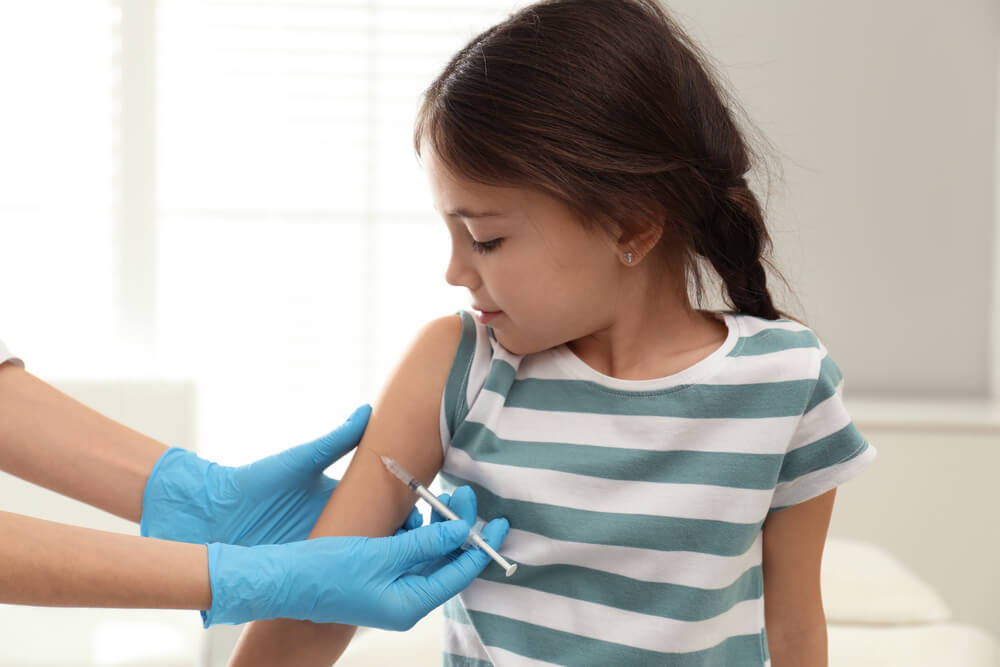Vaccines are substances that imitate diseases in the body to alter the immune system of the various threats it will likely meet later on. A vaccine can be made from weakened or killed viruses, bacteria, or bits of protein that are able to cause an immune response. The purpose of the vaccine is to later prevent infection by the same pathogen.
There are a lot of benefits associated with vaccination, and it has saved millions of lives worldwide. However, there are also several concerns surrounding vaccine effectiveness and safety. For instance, do vaccines cause autism? Do kids have more allergies when vaccinated? These are some common questions surrounding vaccines and their safety.
The main reason why there is a vaccination debate is that vaccines use an actual weakened form of a disease. Therefore, parents are worried about whether or not this can affect their children adversely. The first step in understanding the vaccinations debate is to understand how they work.
How Does a Vaccine Work
When a vaccine is injected, it triggers your child’s immune system and causes it to strengthen its defenses. This can happen in two ways. Either the body produces antibodies to a particular disease, or it can employ other measures that enhance immunity.
If your child is exposed to the same pathogen sometime in the future, the immune system will be better prepared to fight it off and prevent it from causing clinical disease. Vaccines can either prevent the illness from occurring or limit its severity.
Why Should My Child Get Immunized?

The vaccinations debate has been going on for a long time, with some parents asking why their children should be vaccinated to begin with. The main goal of vaccination is to prevent the occurrence of diseases. It is easier and cheaper to prevent diseases than to try and control them. That is exactly why vaccination is a lifesaver.
When your child is vaccinated, they will receive protection from serious diseases. Apart from that, they will also not be able to spread diseases to other children. Over the years, vaccination has helped stop epidemics of once-common dangerous diseases like measles, mumps, and whooping cough. Also, because of vaccines, some diseases have been eradicated.
There are several types of vaccines. Some are only administered once, and some require two or more shots to maintain effective immunity and ongoing protection against illnesses. To find out more about vaccine schedules, you must talk to your child’s doctor. You can also ask them several other questions. For instance, you can ask them the following questions:
- Do kids have more allergies when vaccinated?
- When do kids get the chickenpox vaccine?
- When do kids get the measles vaccine?
- What is the risk of vaccines vs. benefits?
These questions should shed more light on the risk of vaccines vs. benefits. You will also be more aware of when children should receive particular vaccines.
What Immunizations Do My Children Need?
Nowadays, your child will need proof of immunization if they are to be admitted into any school or daycare. Therefore, it is important to ensure that your child gets all the vaccinations they are supposed to. Here are some of the recommended vaccines for children 0-6 years of age:
- Rotavirus
- Hepatitis B and A
- Influenza
- Diphtheria, tetanus, pertussis
- Haemophilus influenzae type B
- Pneumococcal
- Polio
- Chickenpox
- Measles, mumps, rubella
- Meningococcal – in high-risk individuals
These vaccinations are carefully selected because the diseases they protect against have at one time posed a dangerous threat to children. Some have caused thousands of deaths.
Because of vaccinations, most of these diseases have been at their lowest levels for decades.
That’s why you should ensure that your child’s immunizations are up to date. However, even if you miss a schedule, you can catch up later.
COVID-19 Vaccines for Kids
Apart from the usual vaccines for children, a new coronavirus disease 2019 vaccine is also available for kids aged 12 through 15 in the United States. This new vaccine has been shown to be quite effective when it comes to protecting against Coronavirus disease. But how does it work?
How COVID-19 Vaccines Work
The COVID-19 vaccines enable our bodies to build defenses against the virus that causes COVID-19. There are currently different types of vaccines available, and they function in different ways. However, no matter how the vaccine functions, the end result is that the body will be left with a collection of “memory” T-lymphocytes and B-lymphocytes. These are the immune cells that remember how to fight the coronavirus in the future.
The body starts producing T-lymphocytes and B-lymphocytes a few weeks after the vaccines have been administered. Therefore, you can fall sick if you get infected before the vaccine gets enough time to offer protection. You must also note that in some instances, you might experience a few symptoms from the vaccine. However, these are just signs that the body is becoming immune to the virus.
Types of COVID-19 Vaccines
At the moment, there are three primary types of vaccines available. These include the mRNA vaccine, protein subunit vaccine, and vector vaccine.
mRNA vaccines – these vaccines contain genetic material from the vaccines. This material is then introduced to cells and contains instructions on how to make certain proteins that are unique to the virus.
Once your cells manufacture these proteins, they will then destroy the genetic material and start synthesizing the proteins. The body will spot these proteins as being foreign and make T-lymphocytes and B-lymphocytes that memorize how to fight off the entire virus should you be infected in the future.
Protein subunit vaccines – these vaccines are made using harmless viral proteins. Once introduced into the body, again, the body will recognize the proteins as being foreign and make T-lymphocytes and antibodies that can mount a defense against the actual coronavirus.
Vector vaccines – this type of vaccine contains a modified version of the virus that causes COVID-19. Within this virus, there will be material that forms the actual virus that causes COVID-19. Once the viral vector enters your cells, it works like mRNA vaccines to produce viral proteins that are then identified as foreign. These trigger the immune system to mount a response and produce memory T-lymphocytes and B-lymphocytes.
How Effective Are Vaccines?

Vaccines are quite effective at preventing diseases. According to the CDC, their effectiveness is around 90%-100%. For some reason, some children do not become fully immunized after receiving a vaccine. That is why more children should be vaccinated. This will protect the few that will not have full immunity. At the end of the day, everyone’s chances of exposure to diseases will be lower.
Even in those children where vaccination does not give 100% immunity, they will still benefit in some way. Research shows that vaccinated children sometimes only have a mild case of disease compared to those who are not vaccinated altogether.
Why are Vaccines Given so Early?
When children are born, their immune systems will be unaware of the various threats out there. Furthermore, the diseases that vaccines are meant to protect against usually attack children when they are very young.
At this stage, the risk of complications will be very high. That is why children must be vaccinated as early as possible. Sometimes, vaccines are given to children shortly after birth. Waiting until a child is older before giving them vaccines is too risky.
Is it OK to Pick and Choose Vaccines?
In general, choosing vaccines and leaving some is highly risky. This can make your children vulnerable to several serious diseases. You must also consider that children who are not able to receive vaccines for medical reasons rely on the immunity of your own children. If the immunization rate drops, those children will be left vulnerable, and some of the diseases which are now under control might become serious threats again.
If you are concerned about the safety of controversial vaccines, you can have a talk with your pediatrician and get more information. If your child has missed several controversial vaccines, you can arrange to have them get catch-up immunizations.
There are some parents who think that their children don’t need to be vaccinated against rare diseases. This is not a good idea. Even if these diseases don’t seem like a real threat today, your child must be vaccinated against them.
Most people don’t consider that the reason why those diseases don’t seem like a threat today is because of the high vaccination rate. That is what has made those diseases rare today. If your child and other children start skipping vaccinations, those diseases will quickly return and start causing problems.
Concerns Surrounding Vaccine Safety in Children
A lot of work has been done in the field of vaccines to make them safer. Today, most controversial vaccines are considered safe. However, like with any medication, they might cause some babies vaccination side effects.
Fortunately, the majority of babies vaccination side effects are mild and will not cause any serious problems. The most common reactions to vaccines are soreness around the site of the injection and mild fever.
Most babies’ vaccination side effects go away in a few days. It is rare for a child to have a serious fever because of vaccination. If it does happen, the fever will not harm the child in any way. It could just cause some discomfort and make the child upset.
There are some children who have allergic reactions to vaccines. This usually happens a short time after receiving the jab. Fortunately, doctors know how to deal with these situations. If you notice that your child is developing an allergic reaction to a vaccine they received, contact your doctor as soon as possible.
Answers to Common Questions Surrounding Vaccines
When do Kids Get the Chickenpox Vaccine?

Children below the age of 13 years must get two doses. The first one is between 12 and 15 months, and the second one is between four and six years. Children can also get the second dose earlier as long as it’s three months after the first dose.
When do Kids Get the Measles Vaccine?
Children must get two doses of the measles vaccine. The first one is administered when children between twelve and fifteen months old, and the second one are given around four through six years of age. Children could be given an earlier second dose after at least four weeks from the first one.
Do Vaccines Cause Autism?
No, Vaccines do not cause autism. Up to today, there is no scientific evidence suggesting that vaccines cause autism.
Do Kids Have More Allergies When Vaccinated?
There is also no scientific evidence suggesting that vaccines can cause children to have more allergies.
The majority of people agree that the benefits of vaccines far outweigh their shortcomings and minimal side effects. If you wish to obtain more information about vaccines and how they can help your child, contact us today.
You can also schedule an appointment to find out which vaccines your child should get and if they missed any. We have helped parents get their children vaccinated for many years, and you can trust our expertise.


